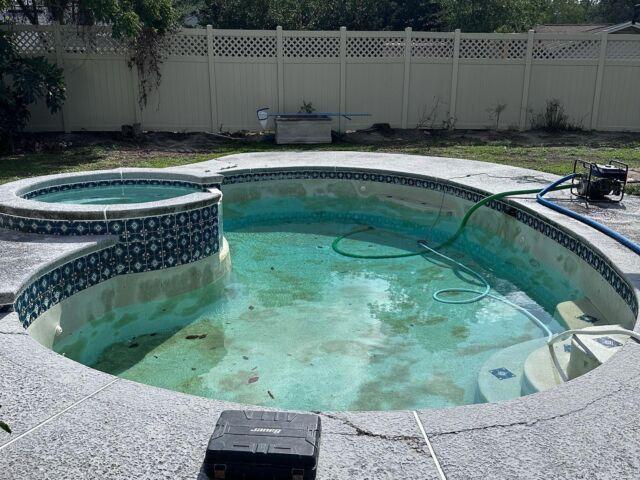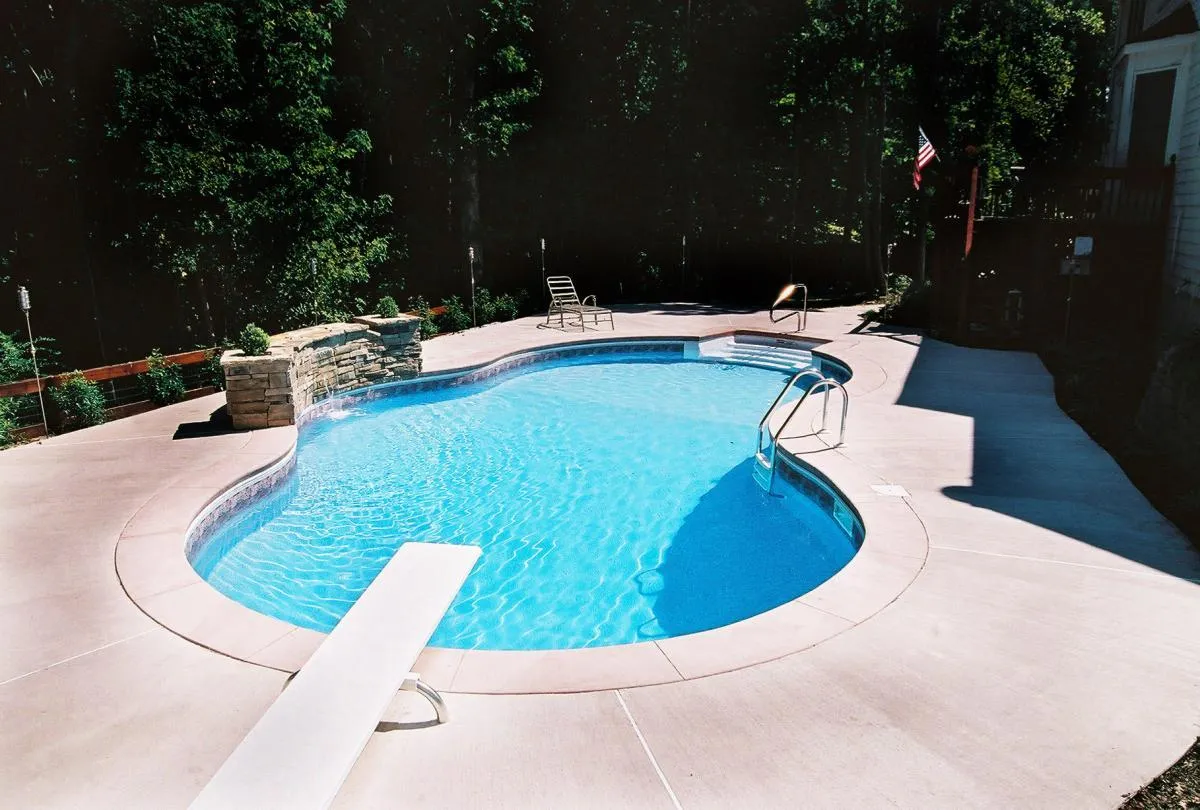
Residential Concrete Pools Services in Charlotte, NC & Surrounding Areas: Your Essential Guide to Custom Backyard Pools
Concrete pools combine unmatched design freedom, structural strength, and enduring performance for Charlotte, NC homeowners—and those in nearby areas such as Gastonia, Cornelius, Huntersville, Indian Trail, Matthews, Mooresville, Belmont, Weddington, Mount Holly, Pineville, Waxhaw, Monroe, and Concord, NC, as well as communities across the South Carolina border including Indian Land, Rock Hill, Clover, Lancaster, Fort Mill, and Tega Cay, SC—who are seeking a true backyard oasis. If you’ve struggled to find a pool solution that stands up to hot summers, heavy rains, and soil shifts, this guide delivers clear answers—from benefits and construction steps to costs, upkeep, renovation, and selecting the ideal local builder. You’ll learn why concrete reigns supreme in customization and longevity, exactly how Charlotte’s regional climate influences pool durability, the complete build process, budget expectations plus financing routes, maintenance essentials and renovation cues, and criteria for choosing top-rated concrete pool professionals across North and South Carolina.
Why Choose Residential Concrete Pools for Your Charlotte Home?
Residential concrete pools are inground structures reinforced with steel and high-strength concrete, offering design flexibility, structural resilience, and long service life. This material composition resists thermal expansion and chemical wear, ensuring your custom pool retains its shape, finish, and safety features despite Charlotte’s humidity and temperature swings. Beyond longevity, concrete shells support built-in spas, water features, and bespoke finishes that other pool types cannot match.
What Are the Benefits of Concrete Pools Compared to Other Types?
Below is a comparative overview of common inground pool materials, highlighting why concrete leads in customization and durability. Concrete pools deliver superior shape freedom and finish options, making them ideal for personalized backyard designs that endure.
Concrete Pool Longevity
Concrete pools, when properly maintained, can last for over 25 years due to their structural integrity and resistance to environmental factors. This longevity makes them a durable choice for homeowners seeking a long-term backyard solution.
How Does Charlotte’s Climate Influence Concrete Pool Durability?
Charlotte’s hot summers and high humidity accelerate surface wear and chemical imbalances in pool water, but concrete’s dense matrix and proper curing process resist
cracking and etching. Seasonal temperature shifts can cause ground movement; a steel-reinforced concrete shell absorbs soil stresses better than rigid fiberglass or flexible vinyl structures, preserving integrity and reducing repair frequency.
What Custom Design Options Are Available for Concrete Pools?
Concrete pool construction supports a wide spectrum of design features tailored to backyard environments:
1. Freeform and geometric shapes that follow landscape contours
2. Integrated spas, tanning ledges, and beach entries for multi-use enjoyment
3. Custom water features such as waterfalls, fountains, and sheer descents
4. Decorative finishes including plaster, pebble aggregate, glass beads, and mosaics
5. LED lighting systems, fire bowls, and built-in seating elements
These options ensure each pool reflects your lifestyle and elevates property value.
What Is the Process for Building a Concrete Pool in Charlotte, NC?
The concrete pool build in Charlotte follows a defined sequence—initial consultation, site survey, permitting, excavation, steel reinforcement, concrete application, plumbing and electrical installation, interior finishing, decking, and water startup—to ensure a tailored, code-compliant result that performs for decades.
What Are the Key Steps in Residential Concrete Pool Installation?
To deliver a structurally sound and beautiful pool, contractors typically follow these critical steps:
1. Site Assessment & Consultation – Evaluate soil type, access, and homeowner goals.
2. Design & Permitting – Finalize pool layout, finishes, and secure Mecklenburg County approvals.
3. Excavation & Steel Reinforcement – Excavate the shell and install rebar framework.
4. Gunite/Shotcrete Application – Spray high-strength concrete mix over rebar cage.
5. Plumbing, Electrical & Equipment – Install filtration, heaters, piping, pumps, and lighting conduits.
6. Interior Finish & Decking – Apply plaster or aggregate finish and pour surrounding deck.
7. Startup & Handover – Fill pool, balance water chemistry, and demonstrate system operation.
This structured approach ensures quality at every phase and a durable foundation for custom features.
How Do Gunite and Shotcrete Methods Differ in Pool Construction?
Gunite and shotcrete both deliver concrete pneumatically but differ in mix delivery:
1. Gunite uses a dry-mix process where water is added at the nozzle, offering high compressive strength and longer setting times for complex shapes.
2. Shotcrete relies on a wet-mix delivered through the hose, enabling faster application with slightly lower compressive strength but excellent adhesion.
Each method balances application speed, crew expertise, and structural performance based on design priorities.
What Permits Are Required for Pool Construction in Charlotte?
Building in Mecklenburg County mandates several authorizations to ensure safety and compliance:
1. Building Permit – Structural review by Code Enforcement.
2. Zoning Clearance – Confirmation of setback and easement requirements.
3. Health Department Approval – Pool barrier and plumbing inspection.
4. Electrical Permit – Certification of lighting, wiring, and bonding.
Securing these permits avoids delays and confirms adherence to local regulations.
How Much Do Residential Concrete Pools Cost in Charlotte, NC?
Concrete pool investments in Charlotte typically start around $75,000 and can exceed $150,000 for luxury designs. Price variability stems from site conditions, custom features, finish quality, and accessory selections, so budgeting with clear cost ranges and financing options is essential.
Which Factors Affect the Final Cost of a Concrete Pool?
Several key variables shape the total investment:
1. Pool size and shape complexity
2. Shotcrete vs. gunite application method
3. Interior finish type (plaster, pebble, glass beads)
4. Added water features, spas, lighting, and automation
5. Excavation conditions and soil remediation needs
Concrete Pool Cost Factors
The final cost of a concrete pool is influenced by several factors, including the size and shape of the pool, the type of interior finish, and the addition of features like water elements or spas. Understanding these variables is crucial for accurate budgeting.
What Financing Options Are Available for Charlotte Homeowners?
Homeowners commonly tap these funding solutions to spread costs:
1. Home equity lines of credit (HELOCs) or second mortgages
2. Personal loans or specialized pool financing programs
3. In-house installment plans offered by contractors
4. Home improvement credit cards with promotional rates
Each option carries interest rates and terms—compare offerings to secure the best fit for your project.
How Can You Maintain and Renovate Your Concrete Pool in Charlotte?
Consistent maintenance and timely renovations preserve structural soundness and aesthetic appeal, maximizing your pool’s lifespan and performance under Charlotte’s weather conditions.
What Are the Best Practices for Concrete Pool Maintenance?
Routine care prevents damage and costly repairs:
1. Brush pool walls and floor weekly to remove algae and debris.
2. Test and balance water chemistry (pH, alkalinity, calcium hardness) at least twice a month.
3. Inspect filters, pumps, and skimmers monthly for flow issues.
4. Address minor surface cracks or stains promptly with patch compounds.
Proactive upkeep sustains water clarity and shell integrity.
When Is Pool Renovation Necessary and What Does It Include?
You should consider renovation when you notice:
Signs like plaster flaking, tile grout separation, or outdated equipment. Renovation often includes replastering, retile or pebble-coating, coping replacement, and upgraded filtration or automation systems.
Seasonal wear and evolving design preferences drive these updates for renewed safety and style.
How Do Local Conditions Affect Pool Longevity and Repair Needs?
Charlotte’s clay-rich soils can shift with seasonal moisture changes, stressing pool shells. High humidity and UV exposure accelerate finish deterioration. Addressing site drainage, adding protective coatings, and using corrosion-resistant equipment mitigates these local effects to extend service life.
Who Are the Top Residential Concrete Pool Builders in Charlotte, NC?
The best Charlotte pool builders combine certified craftsmanship, robust warranties, and deep local code expertise to transform backyard visions into reliable, high-quality concrete pools.
What Should You Look for When Choosing a Charlotte Concrete Pool Company?
Select a builder based on these criteria:
1. Valid NCHBA-certified contractor license and insurance
2. Portfolio of completed inground concrete pool projects
3. Positive customer testimonials and verified reviews
4. Transparent contracts with clear timelines and warranties
5. Local office and service commitment for ongoing support
These factors ensure accountability and quality outcomes.
How Do Customer Reviews Reflect Service Quality in Charlotte?
Homeowner feedback highlights vital service metrics:
1. Adherence to agreed construction schedule and budget
2. Responsiveness to questions and change requests
3. Workmanship evidence in final finishes and landscaping
4. Post-installation maintenance and warranty responsiveness
Review sentiments guide your selection and set realistic expectations.
Where Can You See Examples of Completed Concrete Pool Projects?
Exploring real installations provides design inspiration:
1. Online galleries showcasing freeform, geometric, and resort-style pools
2. Virtual tours highlighting interior finishes and water features
3. On-site visits in neighborhoods like Myers Park, Ballantyne, and SouthPark
4. Portfolio videos demonstrating build sequences and end results
Viewing diverse projects helps refine your vision and confirms builder expertise.
Charlotte’s residential concrete pools stand out for their creativity, strength, and tailored features. By understanding benefits, the step-by-step build process, realistic budget ranges and financing paths, essential upkeep and renovation triggers, and selection criteria for top local builders, you can confidently plan a durable, beautiful backyard retreat. Reach out for a personalized consultation to explore design options, secure accurate estimates, and embark on crafting the concrete pool that perfectly complements your Charlotte home.

What is the average lifespan of a concrete pool?
With proper maintenance, a concrete pool can last for 25 years or more. Its durable construction resists wear and tear from weather and chemical exposure, making it a long-term investment.
How does Charlotte's climate affect concrete pools?
Charlotte's hot summers and high humidity can increase surface wear and affect water chemistry. However, concrete's robust structure, when properly cured and maintained, can withstand temperature fluctuations and ground movement better than other pool types, minimizing cracking and etching.
What are the most popular custom features for concrete pools?
Popular custom features include freeform shapes, integrated spas, tanning ledges, beach entries, waterfalls, fountains, LED lighting, fire bowls, and various decorative finishes like pebble aggregate or glass beads.
What permits are typically required for pool construction in Charlotte?
In Mecklenburg County, you'll generally need a building permit, zoning clearance, health department approval (especially for barriers and plumbing), and an electrical permit to ensure compliance with local safety and building codes.
What factors influence the cost of a concrete pool?
Key cost factors include the pool's size and shape complexity, the chosen construction method (gunite vs. shotcrete), the type of interior finish, the inclusion of custom features like spas or water elements, and any necessary excavation or soil remediation.
How often should I maintain my concrete pool?
Regular maintenance is crucial. This includes weekly brushing of walls and floors, testing and balancing water chemistry at least twice a month, and monthly inspections of filters and pumps. Promptly addressing minor surface issues also helps preserve the pool's integrity.
When should I consider renovating my concrete pool?
Renovation is typically needed when you observe signs of wear such as plaster flaking, separated tile grout, or outdated equipment. Common renovation tasks include replastering, retiling, replacing coping, and upgrading filtration or automation systems.
